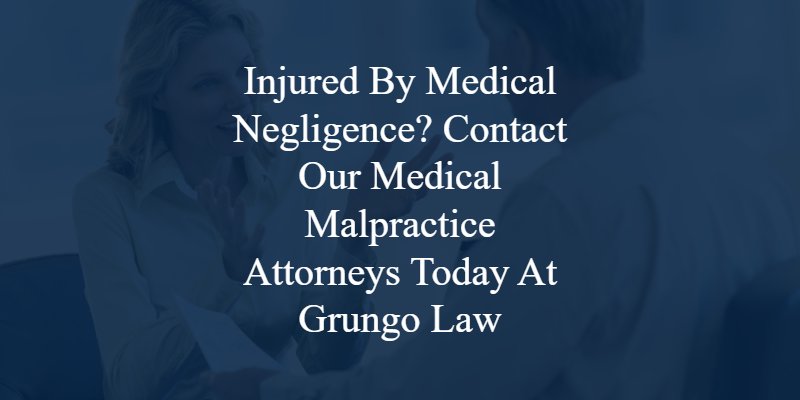New Jersey Medical Malpractice Lawyer
Request a Free ConsultationPatients receiving medical care never expect to feel worse or become sicker after their medical treatment. Unfortunately, thousands of individuals each year experience a worsening of their medical condition as a result of the negligence of a medical provider during the course of their treatment.
When this occurs, the injured patient may be entitled to compensation from the negligent medical provider in the form of a medical malpractice claim. Medical malpractice can result in significant physical injuries, severe worsening of existing medical conditions and even death. With this in mind, anyone who has suffered harm due to the negligence of a doctor or hospital should consult with a New Jersey medical malpractice lawyer to discuss their case. An experienced medical malpractice attorney in South Jersey can assist in preparing those injured for what to expect and conduct an investigation on their behalf to strengthen the claim as much as possible.
If you or someone you love has been a victim of medical malpractice, call Grungo Law today. Our experienced attorneys can help you determine who is at fault and build a strong case to win you compensation. Contact us by phone or online to get started.

Why Choose Us as Your Medical Malpractice Attorneys in New Jersey?
Medical malpractice claims are complex and require experienced handling by lawyers with access to the best medical experts and other resources to investigate, document evidence, and arrive at a carefully calculated list of your damages. At Grungo Law, we offer significant advantages in your medical malpractice case, including the following:
- A free case consultation and no upfront fees—instead, you only pay us after we recover your compensation through a settlement or court award for your damages
- A strong reputation through our history of obtaining over $135 million for our clients
- Lead attorney, Richard Grungo Jr. ESQ holds the distinction of being one of only 2.5% of New Jersey lawyers with a New Jersey Supreme Court certification as a Civil Trial Attorney
- A results-oriented approach to every case with assertive representation by attorneys with a deep knowledge base in New Jersey’s court system, and negligence laws
- Access to the best on-call medical experts and other resources
- We are experienced investigators with a history of notable results, including a recent $4 million verdict in a medical malpractice case for an injury victim whose doctor failed to diagnose their heart condition
We achieve results even in the most complex medical malpractice cases because we have deep compassion for those injured by the medical professionals entrusted with their care.
What Is Medical Malpractice?
In New Jersey, medical malpractice is a deviation from the standard of care. The standard of care is designed to keep patients safe and should be followed. If it is not followed, then it is considered malpractice under New Jersey Law. Even if the doctor claims the deviation was a mistake, it can still be considered malpractice if it resulted in harm to the patient. Some mistakes can be harmless and fortunately will not result in a malpractice claim.
Why Work With An Attorney For Your Medical Malpractice Claim?
Proving liability in a medical malpractice case can be tricky. To prove that your medical provider was at fault and receive a payout from their insurance you will need to prove the following:
- Prove thet was a healthcare provider/patient relationship when the malpractice occured
- Demonstrate that the healthcare provider had a duty of care to treat you, the patient, with the accepted standard of care, or in the same way any other reasonable medical professional would under similar circumstances
- Show that the healthcare provider acted negligently, therefore breaching their duty of care
- Demonstrate that the providers negligence directly caused your injury
- Prove you suffered real economic and non-economic damages as a result of the malpractice
When you work with an experienced attorney, they can help you gather all the evidence to prove these points. With an attorney on your side you stand a better change of getting a fair settlement, or in the case you go to court, have a fair trial. The South Jersey personal injury lawyers of Grungo Law will fight on your behalf to get you the most possible compensation for the losses you have suffered and protect your rights.
Types of Medical Providers
Individuals undergoing medical treatment may be treated by numerous medical providers during the course of their illness or hospital stay. Each of these medical providers is under a separate duty of care to provide their medical services in a safe manner. The following healthcare providers owe every patient a duty of care:
- Physicians
- Surgeons
- Nurse practitioners
- Nurses, nursing staff, nursing aides
- Hospitals
Who Can Be Held Liable In Medical Malpractice Claims?
The party liable for your damages is not always the doctor who treated your illness or injury. Depending on the circumstances, you may be able to hold the doctor personally liable, if they are an independent contractor. In other circumstances, you may hold the medical facility liable. Here is a list of some of the possible parties that may be held liable in your medical malpractice case:
- The doctor
- A nurse
- A staff member or a member of the medical team
- A medical technician
- The hospital or clinic
- The parent company of the medical facility
- The medical equipment manufacturer
For the best possible results, you should work with an experienced malpractice lawyer who can properly investigate who is liable. This will help you to correctly identify the at-fault party in your specific circumstances and file your claim against them.
Common Medical Malpractice Claims
Medical malpractice typically involves the carelessness or recklessness of a medical provider. Some of the most common types of medical malpractice claims include inappropriate or inadequate medical treatment, improper prescription or administration of medication, surgical or operating room errors (including failure to remove foreign objects such as needles or sponges from inside a patient), failing to diagnose (or misdiagnosing) a medical condition, breach of patient-physician confidentiality (including the unauthorized release of medical records), prenatal diagnostic testing errors, delay in medical diagnosis and failing to obtain informed consent from a patient.
Medical providers also may face criminal medical malpractice claims for battery under certain circumstances. This may occur when a medical professional performs a medical test or procedure without first obtaining the informed consent of the patient. A knowledgeable attorney in New Jersey understands medical malpractice claims and could fight for an individual’s rights during a case.
Types of Medical Malpractice Damages
Patients who suffer an injury resulting from negligent medical treatment may be entitled to compensatory, non-economic, and punitive damages. Compensatory damages may include the costs of past and future medical treatment and rehabilitation and lost wages.
Non-economic damages include awards for emotional distress and pain and suffering. In cases where the medical provider exhibited extreme recklessness, malicious intent or fraudulent behavior, punitive damages may also be awarded. Under New Jersey medical malpractice laws, there is a punitive damages “cap” or limit of $350,000 or five times the amount of compensatory damages awarded. No matter the type of medical negligence, a skilled lawyer in New Jersey could help file a claim for compensation.
Does New Jersey Place Other Caps or Limits on Medical Malpractice Damages?
Although New Jersey does cap punitive damages in medical malpractice claims, it does not limit compensation available for other damages. The courts award punitive damages as a punishment and deterrent in cases of egregious negligence in medical malpractice not as compensation for a victim’s damages. Unlike a handful of states that limit the amount of compensation an injury victim can recover in a medical malpractice case, New Jersey does not cap economic or non-economic damages.
Fortunately, juries are often highly sympathetic to malpractice victims and typically award generous compensation for damages. This also encourages negligent providers and their insurance companies to offer substantial settlements to avoid court.
What If I’m Partly at Fault for My Malpractice Injury?
In some cases, a provider’s medical malpractice insurance company may find the malpractice victim partly at fault. For example, they could point out that a patient contributed to their injury by failing to follow a doctor’s instructions, missing a follow-up visit, or neglecting to disclose a portion of their medical history. In this case, the malpractice victim’s percentage of fault is subtracted from their compensation. For instance, if the damages amount to $100,000 in damages, but the injury victim is 25% at fault, they can still recover $75,000. This is how New Jersey’s comparison negligence system works under New Jersey §7.31, which states the following:
“If you find that the plaintiff and one or more individuals or entities were [negligent/at fault] and proximately caused the [accident/injury], then you must compare the [negligent conduct/fault] of those individuals or entities in terms of percentages. You will attribute to each of them that percentage that you find describes or measures their [negligent contribution/fault] in proximately causing the [accident/injury]. The percentages must add up to 100%.”
Unfortunately, this incentivizes insurance companies to find an injury victim partly at fault. An attorney protects their client’s best interests through a thorough investigation and documentation of evidence.

What Should I Do If I’ve Been Harmed by Medical Malpractice?
If you think a doctor or other provider’s negligence caused you an injury or worsened your medical condition, you should seek a complete medical evaluation by a trusted provider who isn’t affiliated with the same medical facility where the malpractice occurred. Ask for a detailed medical report. Be sure to follow the doctor’s treatment recommendations carefully and document all medical bills and receipts for related expenses. Then, do the following:
- Request your medical records from the facility where the malpractice occurred
- Seek a second opinion from a trusted doctor
- Document your experience, symptoms, and all related medical care in a daily journal
- Gather your evidence and call an attorney from Grungo Law to represent you in your case
- Follow your trusted doctor’s or specialist’s advice carefully
- Serve the medical facility where the malpractice occurred with a formal notice within 90 days if the provider is associated with any public or government entity
An experienced New Jersey medical malpractice attorney can guide you through the process to ensure meticulous attention to details, legal requirements, and filing dates, including acting within New Jersey’s statute of limitations.
What Is the Statute of Limitations for Medical Malpractice Claims in New Jersey?
New Jersey has a two-year time limit for medical malpractice claims, beginning from the date the injury occurred, or the date that the injury victim discovers the injury or the cause. The courts may toll—or extend—the statute of limitations for some circumstances. For instance, if a malpractice victim is under the age of 18 when an injury occurs, they have up to two years after their 18th birthday to file a claim. If they are comatose or incapacitated, they have up to two years from the date they recover their cognitive capacity to file a claim.
What About New Jersey’s Requirement for a Medical Expert Affidavit?
New Jersey’s courts discourage frivolous or false medical malpractice claims by requiring the support of a signed affidavit from a qualified doctor. Before a medical malpractice victim can file a lawsuit in court, a doctor with experience or board certification in the relevant specialty must agree that the patient’s injury or worsened medical condition directly resulted from medical malpractice. If more than one provider contributed to the victim’s injury, they’ll require a separate affidavit from qualified professionals within each area of medicine.
New Jersey’s § 2A:53A-27 states the following:
In any action for damages for personal injuries, wrongful death or property damage resulting from an alleged act of malpractice or negligence by a licensed person in his profession or occupation, the plaintiff shall, within 60 days following the date of filing of the answer to the complaint by the defendant, provide each defendant with an affidavit of an appropriate licensed person that there exists a reasonable probability that the care, skill or knowledge exercised or exhibited in the treatment, practice or work that is the subject of the complaint, fell outside acceptable professional or occupational standards or treatment practices.”
How a New Jersey Medical Malpractice Attorney Can Help You
If you or your loved one has suffered a serious bodily injury, including the worsening of an existing medical condition, after receiving medical treatment or consulting with a physician, you may be able to bring a medical malpractice claim against the negligent parties. New Jersey Medical malpractice lawsuits involve a large number of complex legal issues related to insurance, evidentiary standards, the statute of limitations (or the amount of time that a lawsuit must be filed in) and the use of medical experts.
Our dedicated medical malpractice attorneys understand the unique issues in medical malpractice claims. Our experienced litigators, such as our wrongful death attorneys in South Jersey can handle all your medical malpractice legal needs from the initial investigation of the matter and identification of potentially responsible parties through the negotiations with insurance companies and trial preparation.
Grungo Law is committed to aggressively representing our clients in order to obtain the maximum amount of compensation for New Jersey medical malpractice victims and their families. Reach out today to discuss a claim.
